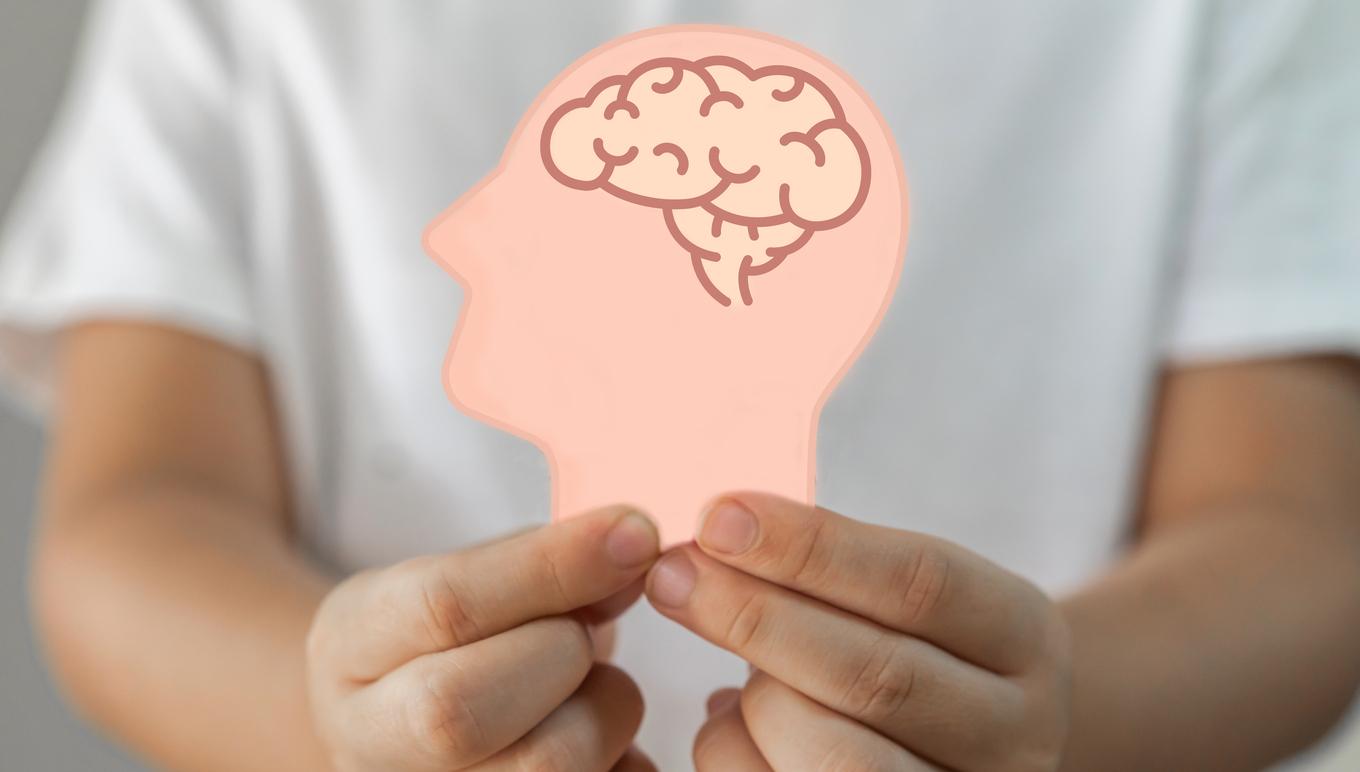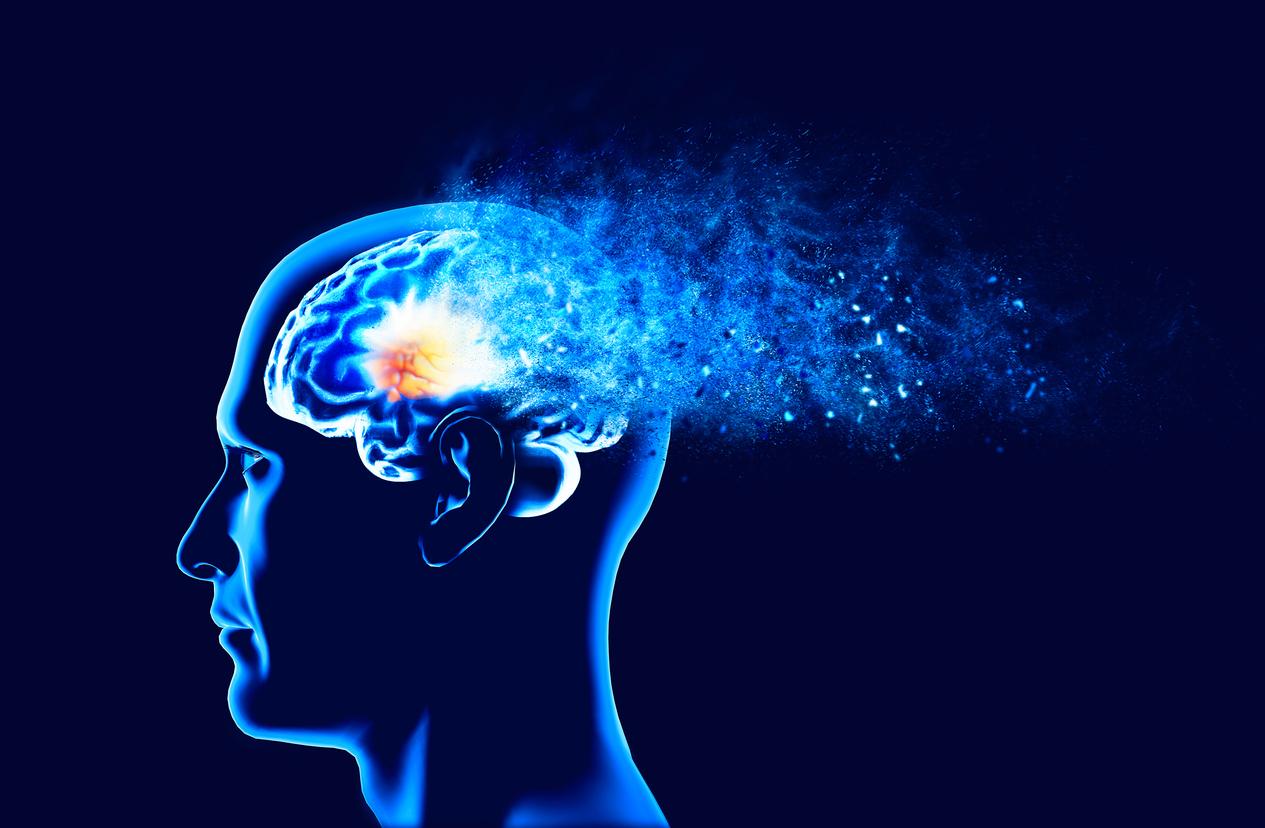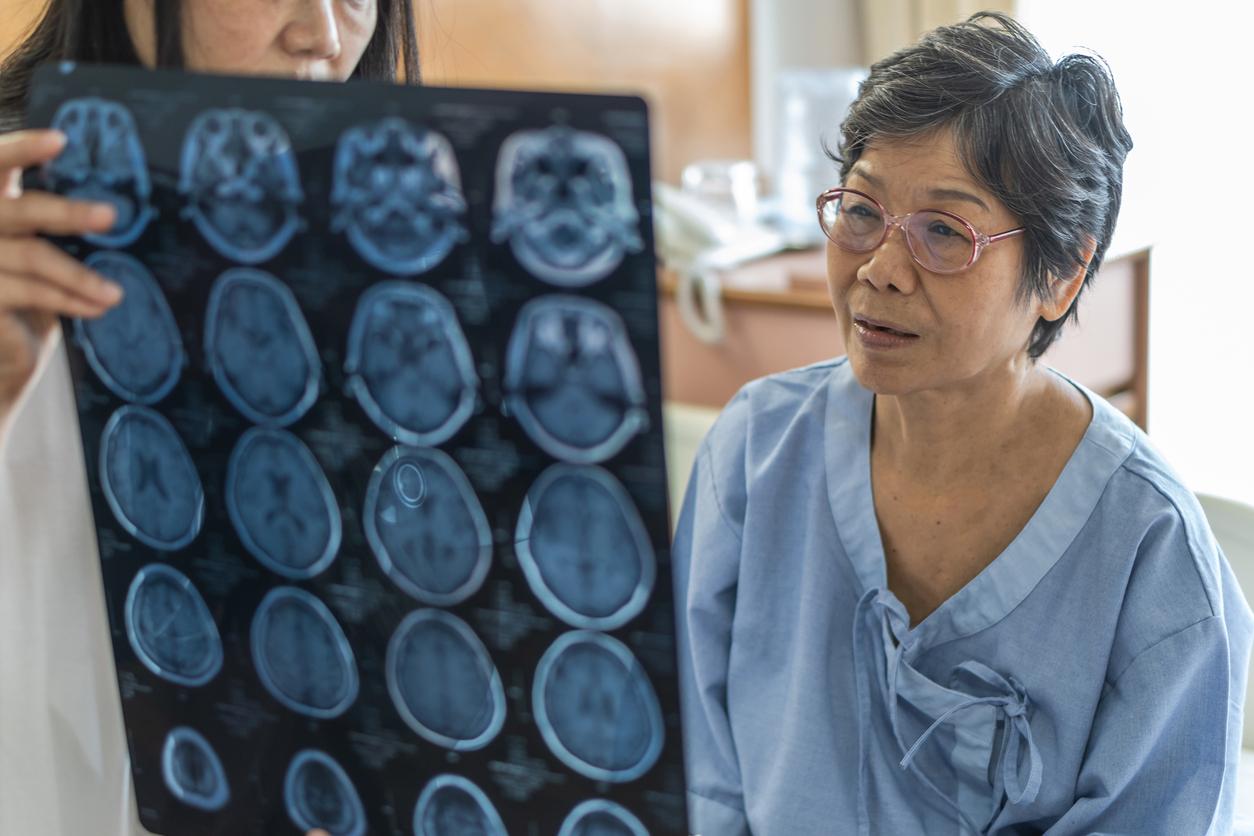Alzheimer’s disease: Donepezil and Ebixa against the symptoms
Two types of medicationsare issued in cases of Alzheimer’s. For the mildest forms of the disease, acetylcholinesterase inhibitors such as Aricept® (donepezil), Reminyl® (galantamine) or Exelon® (rivastigmine) can slow the loss of intellectual faculties and improve the daily behavior of the patient. These molecules act by preventing the destruction of acetylcholine, a very active neurotransmitter in the functioning, among other things, of memory. There are several associated digestive side effects such as nausea, vomiting and diarrhea in 10 to 20% of patients.
For more advanced cases, antiglutamates such as Ebixa® (memantine) are recommended. This treatment blocks glutamate receptors, a molecule produced in excess in the event of Alzheimer’s disease and which becomes toxic for neurons. In practice, the loss of cognitive functions is stabilized or even delayed and behavioral disorders are reduced. The adverse effects observed (dizziness, headaches, etc.) concern approximately 10% of patients. These treatments are 100% covered by Social Security under long-term illness (ALD).
Alzheimer’s disease: drugs with “low” therapeutic interest?
In 2011, the Transparency Commission of the French National Authority for Health reassessed the four drugs usually prescribed for Alzheimer’s disease: Reminyl®, Exelon®, Aricept® and Ebixa®. According to her, these molecules ultimately have a “weak” therapeutic interest. Professor Gilles Bouvenot, President of the Transparency Commission, specifies: “Today, we know that these drugs only have an effect on cognitive disorders and even then, for a few months, and in certain patients only. On the other hand, their adverse effects are more serious and more numerous than expected.” Indeed, in addition to the already known dizziness and nausea, cardiovascular disorders have been induced by taking these drugs in some Alzheimer’s patients.
Conclusion: according to several studies, after a year of medication, there is an improvement in 40% of patients, stabilization in 40% of others and no effect on the remaining 20%. However, these drugs continue to be prescribed in order to promote at least patient follow-up, but the HAS recommends limiting their prescription to one year.
But a new study published in March 2012 in the New England Journal of Medicine, revives the debate. According to British researchers, continuing treatment with donepezil in the moderate and severe phase of Alzheimer’s disease could slow the progression of the disease in twice as many patients!
Alzheimer’s disease: less neuroleptics
In addition to the usual treatments for Alzheimer’s disease, neuroleptics are often prescribed to relieve the behavioral disorders inherent in the disease: agitation, aggressiveness, hallucination or wandering. As part of the Alzheimer’s plan, the High Authority for Health (HAS) announced in 2010 a program aimed at reducing the administration of these neuroleptics. According to the available data, out of 1,000 Alzheimer’s patients treated for 12 weeks, only 91 to 200 patients show a reduction in behavioral disorders! Worse, the prescription of these treatments leads to 10 additional deaths, 18 stroke and 58 to 94 patients develop a gait disorder.
The HAS therefore aims to divide by three the prescription of neuroleptics in these patients and to re-examine it on a case-by-case basis. Instead, she advocates non-drug alternatives. For example, the “bath in bed” reduces by 60% the manifestations of aggressiveness very frequent during the toilet.
Alzheimer’s disease: the treatments of tomorrow
Rember®, a drug targeting the Tau proteins that accumulate in the brains of Alzheimer’s patients causing their neurons to asphyxiate, is particularly promising. A study on 321 patients showed that after 19 months of treatment, the deterioration of their neurological functions decreased by 81%. Rember®, whose active compound is methylene blue, is still being tested.
A vaccine therapy is also under study. In 1999, tests on mice showed the effectiveness of this immunotherapy consisting of triggering the production of antibodies in the patient in order to fight against the beta-amyloid peptide responsible for the formation of senile plaques, the main brain lesions caused by Alzheimer’s disease. The human trials started in 2001 were stopped a year later following the appearance of encephalitis in some of the patients treated. But the results remaining generally positive, the researchers are working on a new version of the vaccine.
>>Also read: Alzheimer’s: what’s new in 2010?
>>Also read: Alzheimer’s disease: it can be detected 3 years before.

















